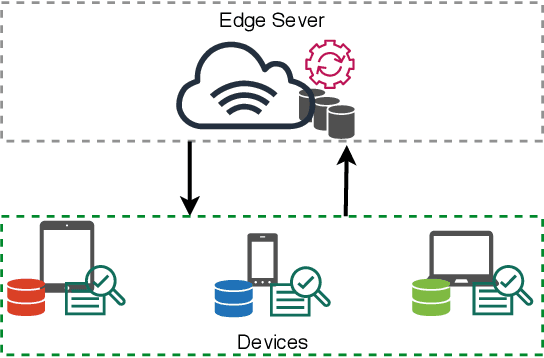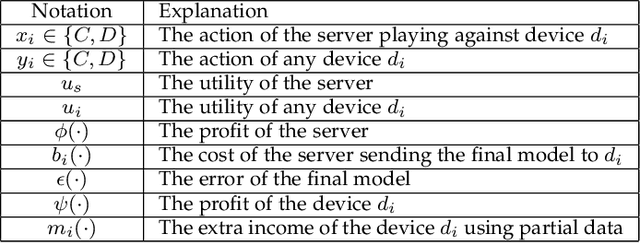Shengling Wang
Nothing Wasted: Full Contribution Enforcement in Federated Edge Learning
Oct 15, 2021



Abstract:The explosive amount of data generated at the network edge makes mobile edge computing an essential technology to support real-time applications, calling for powerful data processing and analysis provided by machine learning (ML) techniques. In particular, federated edge learning (FEL) becomes prominent in securing the privacy of data owners by keeping the data locally used to train ML models. Existing studies on FEL either utilize in-process optimization or remove unqualified participants in advance. In this paper, we enhance the collaboration from all edge devices in FEL to guarantee that the ML model is trained using all available local data to accelerate the learning process. To that aim, we propose a collective extortion (CE) strategy under the imperfect-information multi-player FEL game, which is proved to be effective in helping the server efficiently elicit the full contribution of all devices without worrying about suffering from any economic loss. Technically, our proposed CE strategy extends the classical extortion strategy in controlling the proportionate share of expected utilities for a single opponent to the swiftly homogeneous control over a group of players, which further presents an attractive trait of being impartial for all participants. Moreover, the CE strategy enriches the game theory hierarchy, facilitating a wider application scope of the extortion strategy. Both theoretical analysis and experimental evaluations validate the effectiveness and fairness of our proposed scheme.
 Add to Chrome
Add to Chrome Add to Firefox
Add to Firefox Add to Edge
Add to Edge